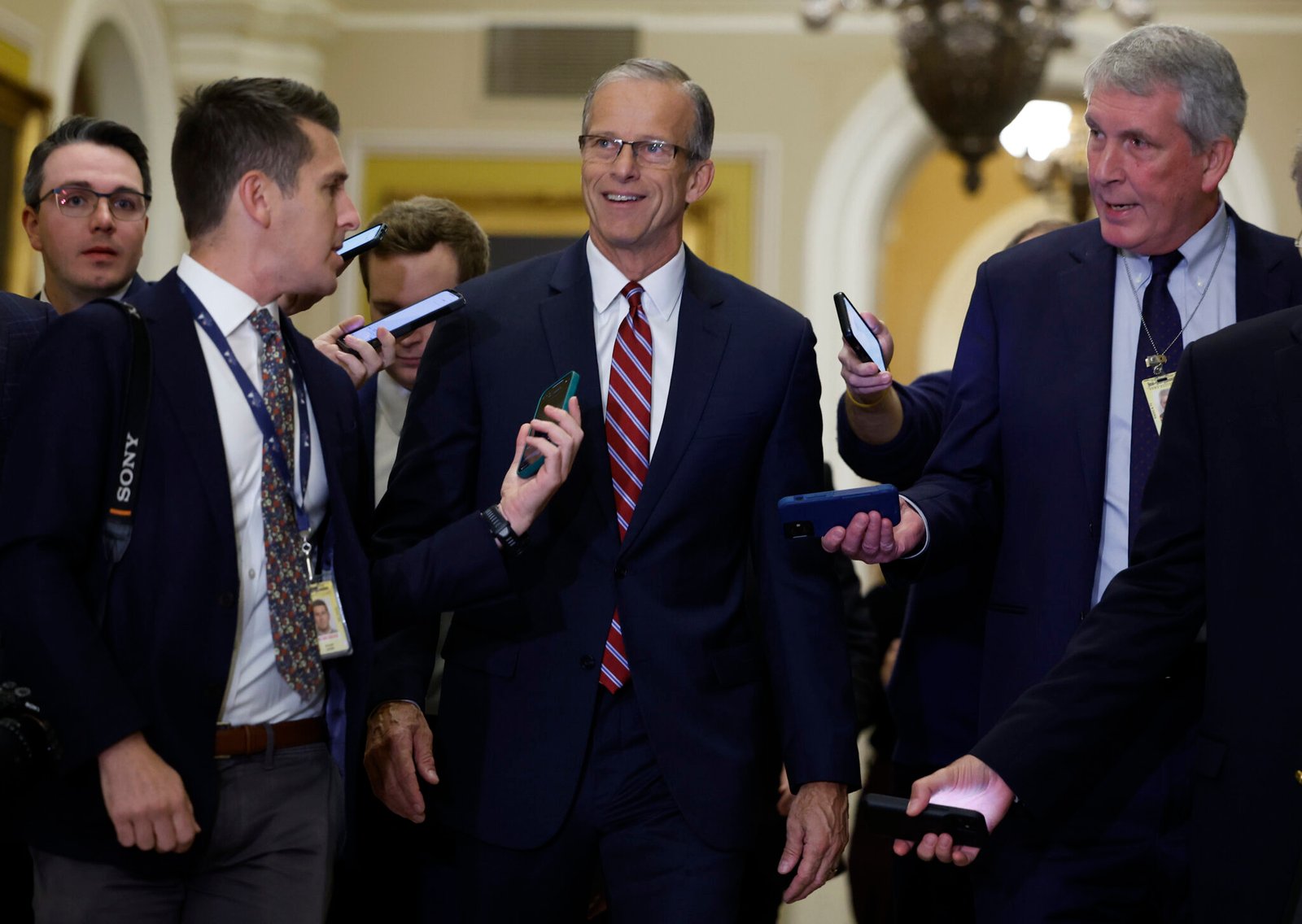DC Bureau
South Dakota’s John Thune Takes Charge as New Republican Majority Leader

WASHINGTON — On Wednesday, Republican leaders were elected as Congress prepared for its upcoming session. The Senate welcomed a new majority leader, marking a significant shift, while the House retained familiar faces in leadership roles.
Senator John Thune of South Dakota will take over as the majority leader in the Senate, replacing Mitch McConnell of Kentucky, who has led the GOP since 2007. Thune secured his position after a closed-door ballot, outpacing competitors John Cornyn of Texas and Rick Scott of Florida.
Thune expressed optimism about reclaiming the majority, stating, “We have a mandate from the American people” to advance President Donald Trump’s priorities, including important issues like border security and energy policy.
Several new Senate leaders also emerged from Wednesday’s elections. John Barrasso from Wyoming was elected as the assistant majority leader, while Arkansas Senator Tom Cotton defeated Joni Ernst of Iowa for the role of conference chair. Additionally, Shelley Moore Capito of West Virginia will serve as chair of the Republican Policy Committee.
Before the election, Trump urged the new Senate leadership to consider an early recess to facilitate his appointment process, emphasizing a streamlined approach for his nominees. Thune acknowledged the importance of efficiently processing these appointments while emphasizing a commitment to traditional confirmation hearings.
Senator Mike Rounds of South Dakota attributed Thune’s successful election to his established rapport within the party, highlighting his consistent support for Trump’s policies.
Thune, a seasoned politician at 63 years old, was first elected to the Senate in 2004 after serving six years in the House. His history of leadership roles within the Senate includes chairing various committees and his resolute stance on bipartisanship.
As the GOP aims for a more unified legislative agenda, Thune may need to navigate tensions surrounding budget reconciliation processes, which allow majority parties to pass legislation without meeting the typical filibuster threshold.
In the House, Republican leaders solidified their positions, with Louisiana’s Mike Johnson nominated for a second term as speaker. Steve Scalise and Tom Emmer retained their roles as House Republican leader and whip, respectively. Michigan’s Lisa McClain will take over as party conference chair, succeeding Elise Stefanik.
Following the closed-door elections, leadership expressed readiness to commence legislative work immediately when Congress reconvenes on January 3.
Emmer noted potential challenges within the party, reflecting on the necessity for cooperation despite recent divisions. “There’s more that unites us than divides us,” he said, signaling a cautious hope for collaboration moving forward.
Last updated 6:12 p.m., Nov. 13, 2024


















